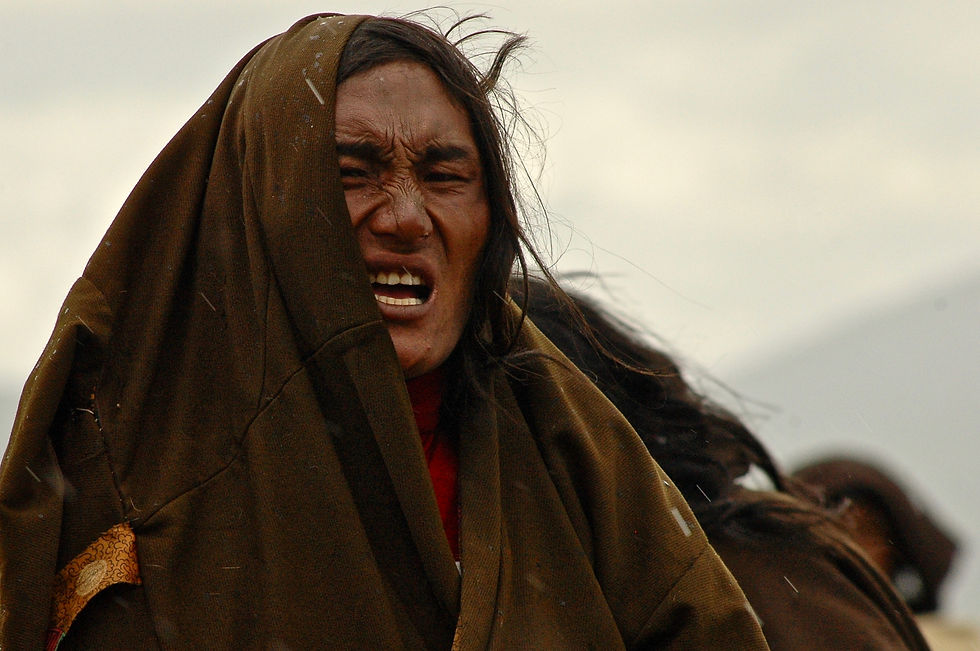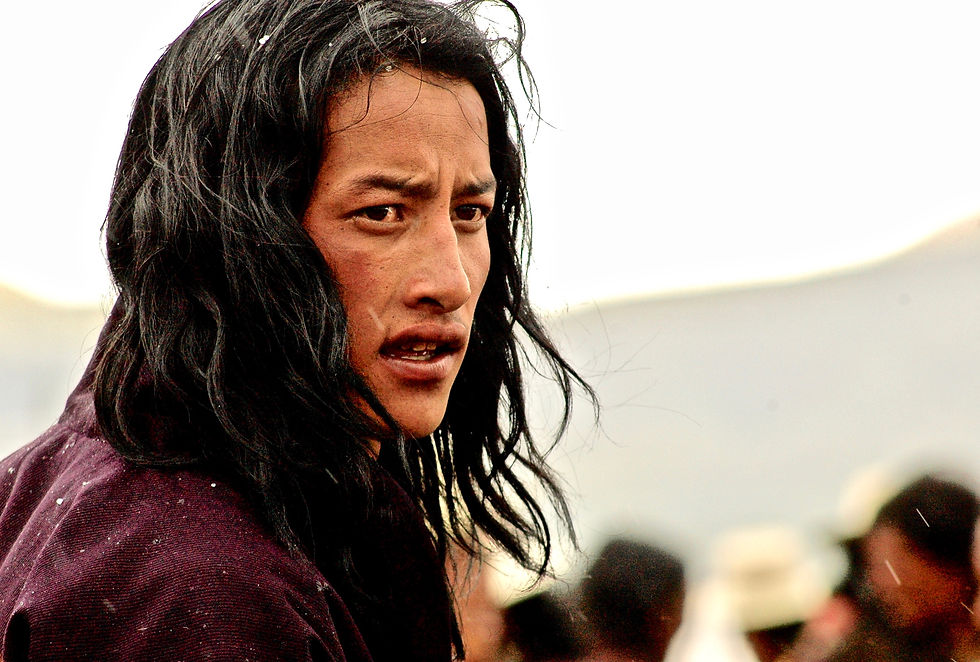Tea Horse Road Chronicles Part 2 - Coming Snow
- Jeff Fuchs
- Dec 6, 2020
- 1 min read
Nomads tuck into wools as a snow storm begins to usher in a new sky and new snow-filled gusts near Litang, in western Sichuan. The Litangba (people of Litang) were revered and feared along portions of the Tea Horse Road for sometimes opposing reasons. Not only did they make daunting guardians for many of the caravans loaded with tea, salt, resin, and wool; they were also formidable thieves of the very goods caravans were hauling. One tea trader in Lhasa remarked “When Litang people are involved, you speak straight and keep your word. If you don’t, there will be problems”.

Known for bravado and fearless wandering, locals of the Litang-Batang region found renown as risk-it-all businessmen and women and as toughened caravan teams. The suffix 'tang' refers to a grassland and in the ancient times Litang, Batang, and Gyalthang (now called 'Shangrila') was a recognized and respected area where caravan leaders, muleteers, and traders came from. Throughout our journey we would hear stories of the people of Litang. Shrewd and direct in business dealings and devoted to codes of conduct (even amongst thieves) they made for a constant stream of interest, even as far west as northern India and Nepal, where threads of the Tea Horse Road ended up. Many nomads who acted as guardians for the caravans of commodities would have a hidden sheath woven into their leggings, within which would be a long blade. It is one of the reasons many Litangba's would keep one arm uncovered at all times - to access this hidden weapon.


Comments